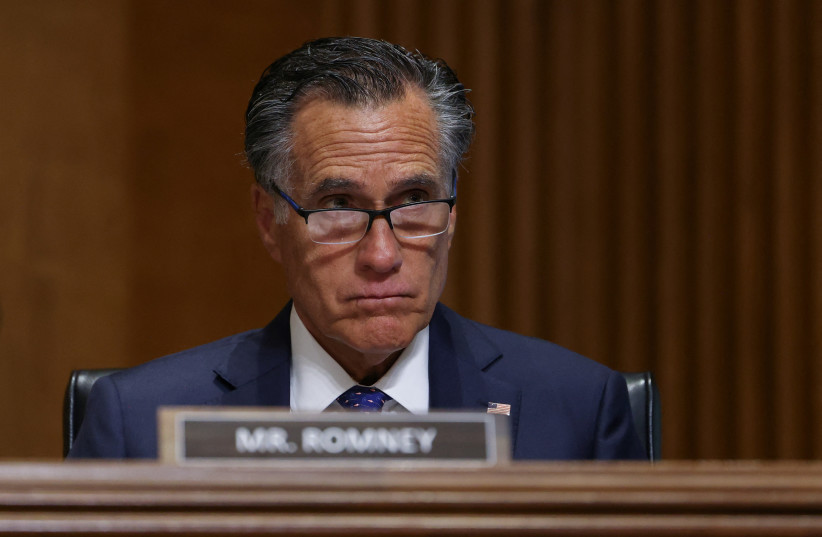US Senator Mitt Romney will not seek reelection in 2024, capping a roller-coaster ride through Republican politics from the height of his party's 2012 presidential nomination to the depths of tribal warfare in the age of Donald Trump.
Casting aside the hopes and appeals of colleagues including Senate Republican Leader Mitch McConnell, the 76-year-old Utah Republican said he would retire as a one-term senator when his term ends in early 2025, rather than seek another six years among a dwindling number of Republican moderates in Congress.
"At the end of another term, I'd be in my mid-80s. Frankly, it's time for a new generation of leaders," Romney said in a video statement released on Wednesday. "While I'm not running for reelection, I'm not retiring from the fight."
The son of a former Michigan governor and auto industry executive, Romney became a multimillionaire in the private equity business and served as governor of Massachusetts before mounting an unsuccessful challenge against former President Barack Obama as the Republican party presidential nominee in 2012.
As a US senator since 2019, he has been an outspoken critic of Democratic President Joe Biden, though one willing to work with the White House and Democrats on issues including infrastructure and gun control.

But within Republican circles, Romney stood out as a rare Trump critic who voted to convict the former president at two Senate impeachment trials.
With Trump dominating the 2024 Republican presidential field, Romney has faced powerful headwinds at home in solidly Republican Utah. A Deseret News poll in June showed 47% of Republicans saying that Trump best represented them, compared with 39% who favored Romney.
Trump called Romney's retirement "fantastic news for America" in a social media post on Wednesday.
Trump-aligned successor?
Romney's decision to retire effectively surrenders his Utah Senate seat to a Republican successor who could be more closely aligned with Trump and the hardline conservative politics of the state's other US senator, Mike Lee.
Brad Wilson, the Utah state House speaker, has not declared his candidacy for Romney's seat. But he has raised $2.2 million through an exploratory committee, including more than $1 million from individual donors, and boasts a slew of endorsements from state lawmakers.
Riverton Mayor Trent Staggs, a Trump supporter, has already declared his candidacy. Others, including former US Representative Jason Chaffetz, are also seen as possible contenders for the Republican nomination.
McConnell, who has put a premium on Senate candidate quality in the 2024 election campaign, had urged Romney to seek reelection, describing him as "an incredibly effective senator" to the Wall Street Journal in August.
But Romney has shown little interest in backing away from his longstanding criticism of Trump as a candidate driven by "revenge and ego," urging Republican megadonors and influencers in a July op-ed to help narrow the 2024 presidential field in a bid to deny Trump the White House.
Romney, a fifth-generation member of the Church of Jesus Christ of Latter-Day Saints, or Mormon church, narrowly avoided censure by the Utah Republican Party over his opposition to Trump in 2021. But he was still booed and heckled onstage at a state party convention that year.
"I understand that I have a few folks that don't like me terribly much, and I'm sorry about that. But I express my mind as I believe is right and I follow my conscience as I believe is right," he told the crowd.
